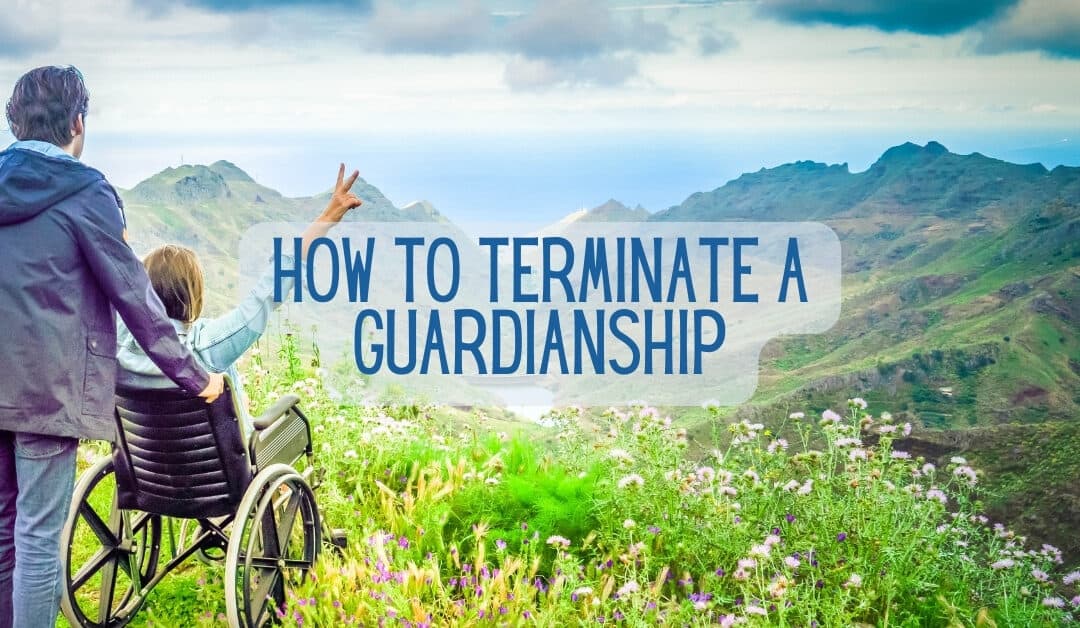In North Carolina, it is not easy to end a court-ordered guardianship arrangement. In most cases, if there are allegations of abuse or neglect by the guardian, a court will grant an emergency removal. However, there are other reasons you may want to terminate a guardianship or remove a guardian. Let’s look at how hard it is to terminate a guardianship in North Carolina.
What is a Guardianship in NC?
A guardianship is a court-ordered position in which one person (the guardian) has the legal authority to make decisions on behalf of another person (the ward). The ward may be a minor child, an incapacitated adult, or someone with developmental disabilities.
In North Carolina, there are three types of guardianships:
- General Guardian: The guardian has the legal authority to make all decisions regarding the ward’s personal care, medical treatment, education, finances, and residence.
- Guardian of the Person: The guardian has the legal authority to make decisions regarding the ward’s personal care, medical treatment, education, and residence. The court will specify what types of decisions the guardian can make.
- Guardian of the Estate: The guardian has the legal authority to make decisions regarding the ward’s finances and property.
A guardianship can be temporary or permanent. It can be limited to specific needs. The type of guardianship depends on the ward. The guardian has a legal duty to act in the ward’s best interests at all times.
How to Terminate a Guardianship in NC
If a guardianship is no longer needed, or if the guardian is no longer willing or able to perform their duties, the court has the power to terminate the relationship. The ward or the guardian can petition the court to terminate the guardianship.
The petitioner must provide evidence to the court that:
- The guardian is no longer needed or wanted.
- Termination of guardianship would be in the ward’s best interests.
The court will hold a hearing to decide whether to terminate the guardianship. The ward has a right to attend the hearing and testify but is not required to do so. The guardian can also participate in the hearing and testify.
If you need to terminate a guardianship, you should speak with an experienced attorney beforehand. An attorney can help you gather the evidence you need and present your case to the court. Terminating a guardianship is not easy, but it is possible with the help of an experienced attorney.
How to Prove Your Case at the Court Hearing
What kinds of evidence will you need to prove your case to the clerk of court? In most cases, it’s best to let your guardianship attorney handle the details of evidence, witnesses, and medical proof. An experienced attorney understands what the court needs to see.
Proving that a guardian is no longer needed may be as simple as showing that the ward has recovered from an illness or injury and no longer needs help with day-to-day tasks. Medical records, doctor testimony, and witness testimony can all contribute to your case.
It’s important to remember that termination of a guardianship is not automatic just because you file a petition with the court.
Emergency Removal of a Guardian
North Carolina law allows the clerk to remove a guardian without a hearing if the clerk finds reasonable cause to believe that an emergency exists threatening the ward’s physical well-being or causing a risk of substantial injury to the ward’s estate.
Reasonable cause could consist of inappropriate pictures of the ward, proof of gross financial misconduct, evidence of abuse, or intention to hurt the ward.
How to Change the Guardian?
If the guardian is no longer willing or able to perform their duties, you’ll need to provide evidence of this to the court. This evidence could include testimony from witnesses who have seen the guardian neglecting their duties or engaging in abusive behavior towards the ward.
According to North Carolina law, the court may remove a guardian if they:
- Waste the ward’s money or estate or converts it to his own use.
- Mismanage the ward’s estate.
- Neglect to care for or maintain the ward or his dependents in a suitable manner
There are many other reasons you can ask the court to appoint a successor guardian. If you’re unsure if your reasons are sufficient to end a guardian’s role, talk with an experienced guardianship attorney about your case.
What Happens After Termination of Guardianship?
After the court terminates a guardianship, the ward will regain all legal rights they lost when the guardianship order first occurred. The ward gains back the right to make their own decisions about personal care, medical treatment, education, and residence.
The ward will also regain control over their finances and property. A guardian of the estate will no longer have authority over the ward’s money or property.
It’s important to note that a guardianship can end without ending the relationship between the ward and guardian. In some cases, it may be in the ward’s best interests to maintain a relationship with the guardian even after the guardianship has ended.
Taking Action
If you find yourself in a situation where you need to end a guardianship, talk with an experienced attorney who can help you through the process. Terminating a guardianship is not easy, but it is possible with the right help.
We Can Help
At Cape Fear Law, our experienced guardianship attorneys can help you navigate the process of terminating a guardianship. We understand how difficult this situation can be, and we’re here to help. Contact us today for a free consultation.
Sources:
“How to Prove Need for Guardianship Termination to a Court?” NCGS Guardian ad Litem Program, 18 June 2018, guardianprogram.org/for-parents-and-relatives/how-to-prove-need-for-guardianship-termination-to-a-court/
“Emergency Removal of a Guardian.” NC General Assembly, 25 Feb. 2019, ncleg.net/EnactedLegislation/Statutes/HTML/ByArticle/Chapter_35A/Article_14.html.
“How to Change the Guardian?” NCGS Guardian ad Litem Program, 18 June 2018, guardianprogram.org/for-parents-and-relatives/how-to-change-the-guardian/.
“What Happens After a Guardianship is Terminated?” NCGS Guardian ad Litem Program, 18 June 2018, guardianprogram.org/for-parents-and-relatives/what-happens-after-a-guardianship-is/.

